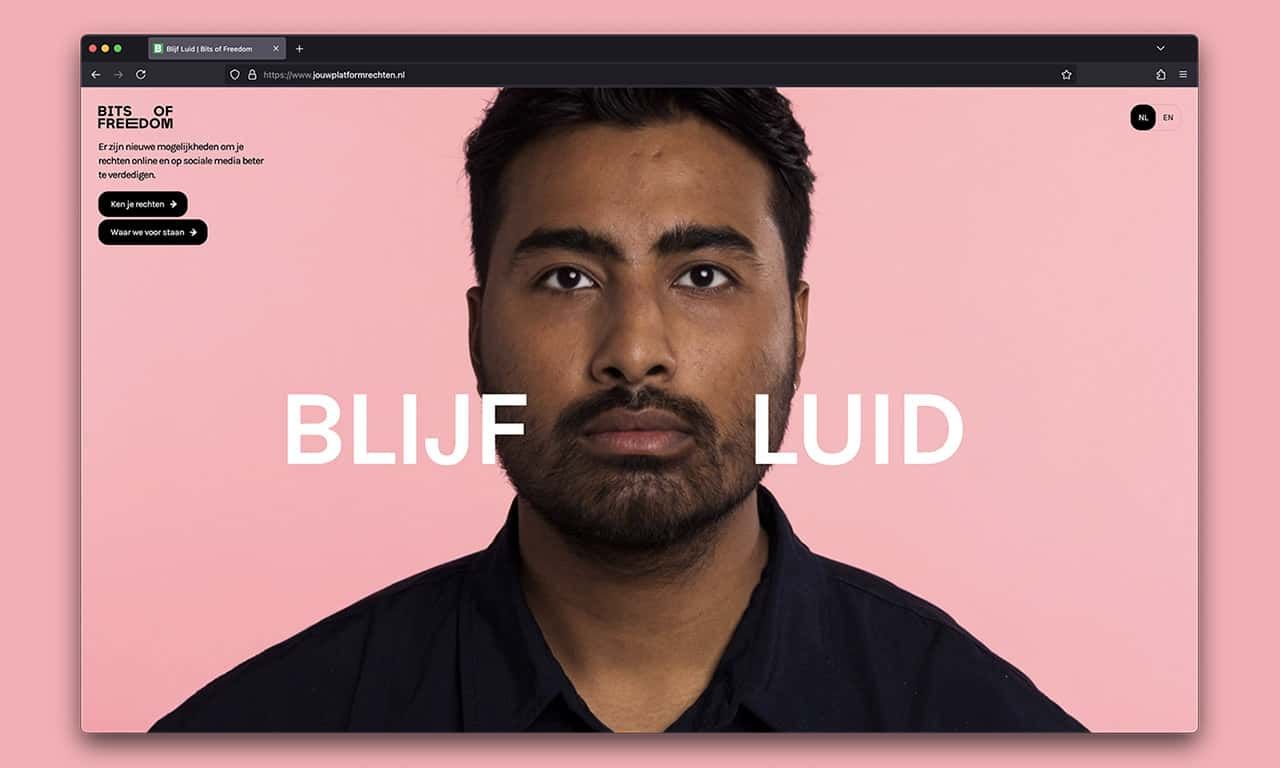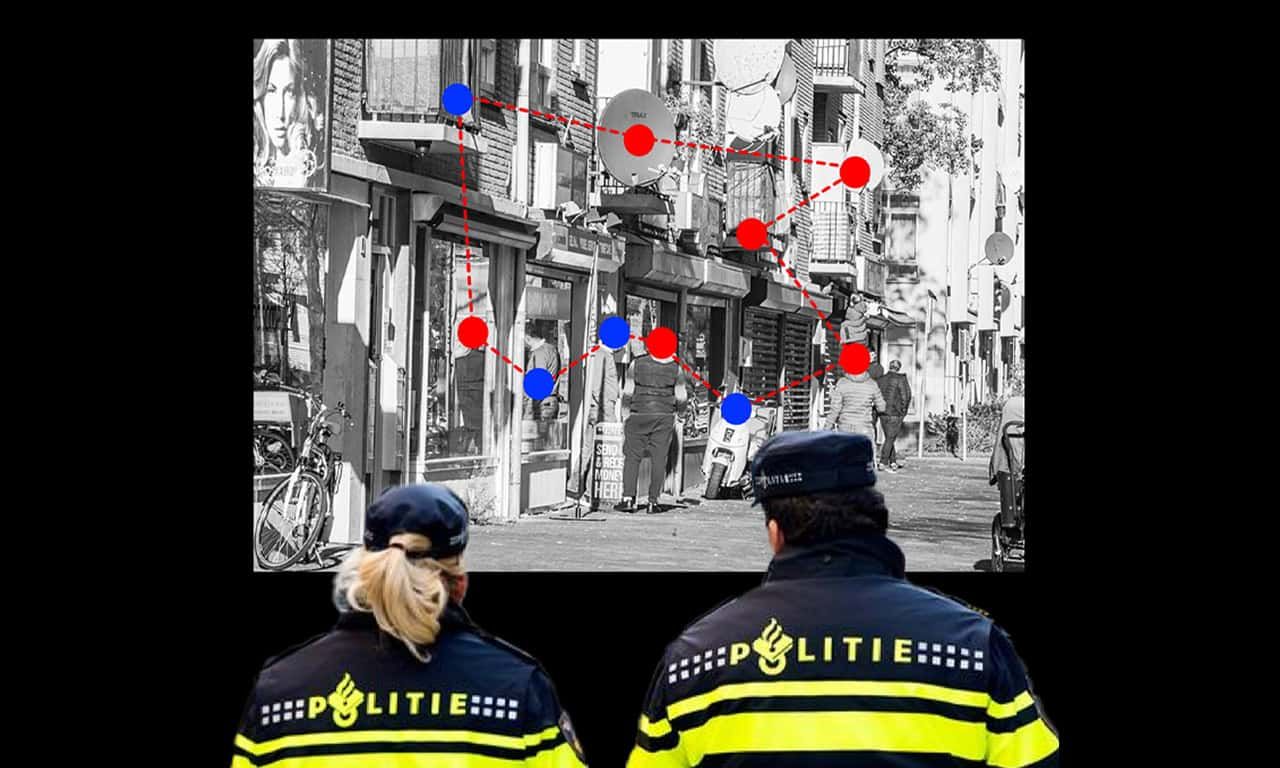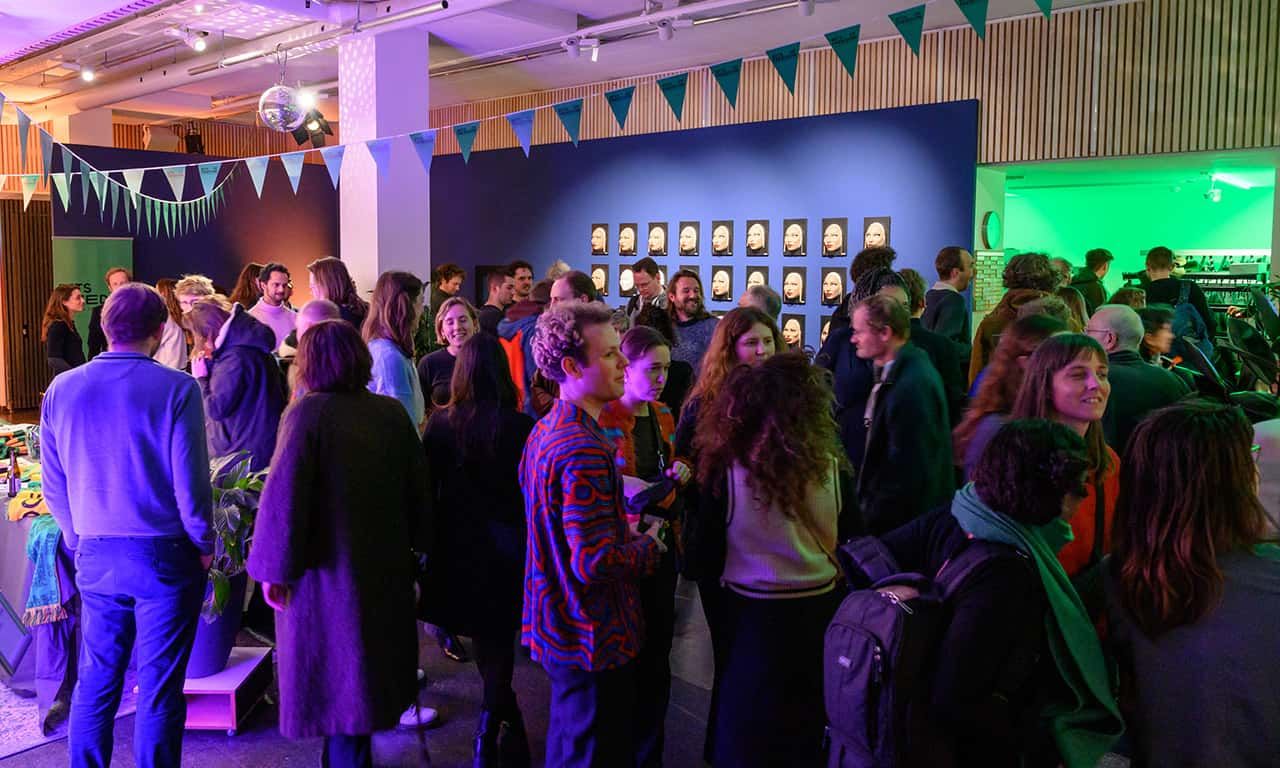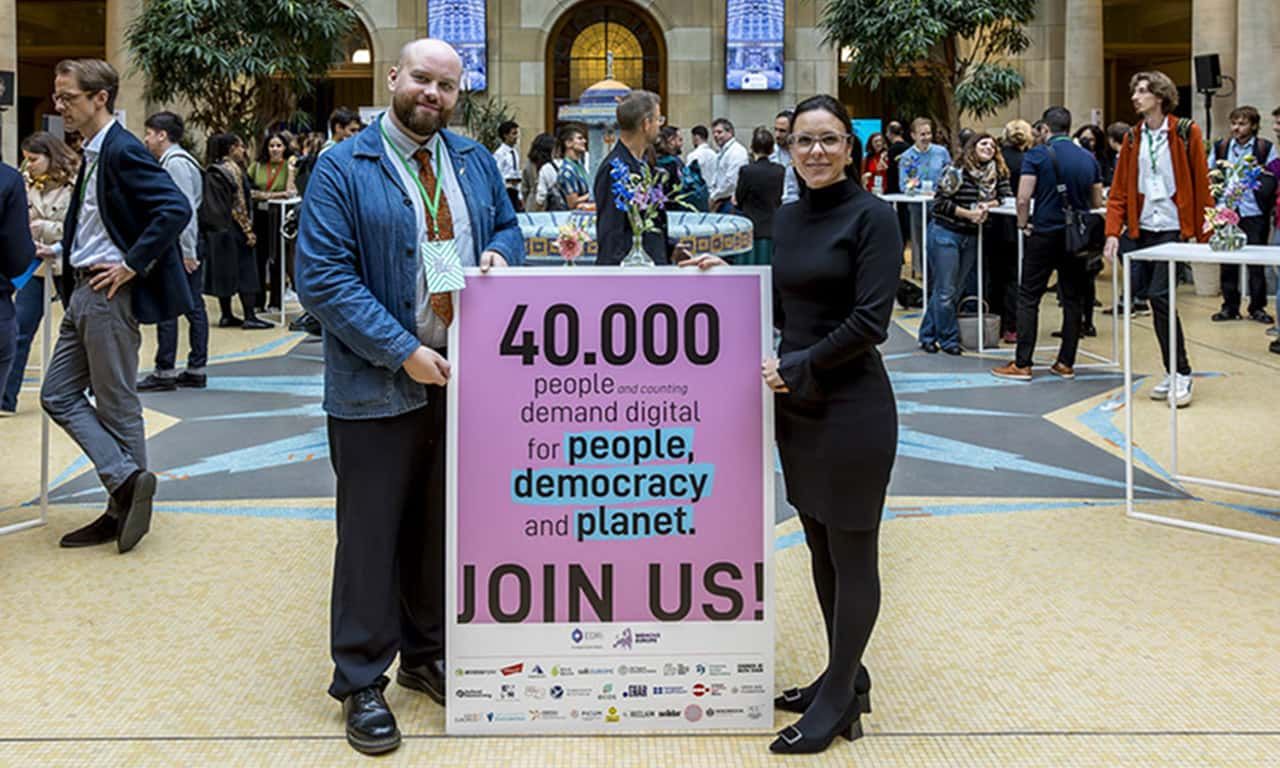Our highlights
If you ask us, these are the topics we like to talk about
Platforms We took a stand against a social media minimum age
These days young adults spend an increasing amount of time on social media platforms. All this time online can have an effect on their physical, mental and social wellbeing.
Not surprisingly there is a lively discussion going on worldwide about a social media age limit. Also in the Netherlands.
We spoke out against an age limit as it does not address the underlying problem – i.e. that social media affects everyone’s mental health. Social media will get better only if you regulate the addictive and toxic effects. We stuck to our guns in the media and in the Lower House’s Digital Affairs Committee. And we succeeded: at this point the government will not introduce a strict social media minimum age.
We said goodbye to X.
A multimillion fine for the illegal use of face recognition technology

Biometric surveillance A multimillion fine for the illegal use of face recognition technology
The controversial American corporation Clearview AI has been hoovering up the faces of billions of people using face recognition technology. Those faces en up in a searchable database. Against a fee, Clearview AI grants access to investigative services.
To us this was a major cause for concern. Not only because it is absurd that corporations make money out of databases stocked up with our faces. But also because it is plain illegal. In 2023 we tipped off the Dutch Data Protection Authority (DPA) asking them to take a closer look at Clearview AI.
In 2024 the DPA imposed a 30.5 million fine on Clearview plus penalties up to five million Euro. At the same time the DPA launched an investigation into the use by the police of this type of technology. And not a moment too soon.
We mobilized for European AI legislation
AI We mobilized for European AI legislation
Organizations and authorities increasingly use artificial intelligence (AI) and algorithms. They do not always use it the way they should and when they don’t, the impact on the general public can be dramatic. Mercifully, over the past years a European law was in the pipeline regulating artificial intelligence. On 1 August 2024 this long-awaited AI regulation finally took effect.
During the drafting stage of the act we provided information. We analyzed numerous versions of the draft, spoke to organizations that could be stakeholders and of course we met with policy makers in The Hague and Brussels to draw attention to the interests of the general public.
With success! The act provides for stricter technical requirements for developers of AI systems, transparency rules for government agencies using those systems and accessibility criteria for high-risk systems. Other developments concern perspectives for legal action for victims of algorithmic systems, and a ban on certain applications. Is our work done? Definitely not. But we are proud of our achievements so far and see opportunities to further boost the protection of the general public.
We collaborated with more than 50 other civil society organizations!
We helped people strengthen their defense against Big Tech

Platforms We helped people strengthen their defense against Big Tech
Early 2024 two new European acts became fully effective: the Digital Services Act (DSA) and the Digital Markets Act (DMA). Acts that were drafted to halt the dominance and mechanisms of major online platforms.
To raise user awareness of these new rules and the possibilities to better defend their social media rights, we launched an international campaign together with communications agency KesselsKramer. We hooked up with activists and other (European) organizations to spread the message: ‘Know your rights, be safe and stay loud’.
We created the website jouwplatformrechten.nl, drew up a manifesto, and assembled a toolkit that made it easier to share the message. Local news websites frequently ran advertisements for the message, obviously completely tracking-free.
We advocated the right to communicate in confidence

Encryption We advocated the right to communicate in confidence
For three years already European policy makers have been negotiating a bill that government agencies could use to force platforms to grant access to all user messages.
This will hurt everyone, including the children and young adults the draft is meant to protect against online sexual abuse content. Despite all signals and criticism, the Ministry of Justice and Security still wanted to adopt the draft.
We contributed to public commotion, both directly and indirectly. Succumbing to all external pressure the government finally decided not to adopt the draft as it would present too great a risk to our digital security. Although the draft is not yet off the table, its adoption seems farther away than ever.
Our number of followers on BlueSky grew exponentially by 450%!
We called the City of Amsterdam to account about the profiling and surveillance of children

Algorithms We called the City of Amsterdam to account about the profiling and surveillance of children
The objective of the City of Amsterdam’s Top400 program (meanwhile also called ‘Safe Alternative’) is to prevent children from getting involved in serious and organized crime. From the moment an algorithm ‘selects’ children for the ‘program’, they are constantly monitored by various agencies.
We were worrying about how children were selected and the dramatic consequences of selection, i.e. long-term sweeping surveillance.
Meanwhile the algorithm is no longer used. All well and good, but we want compensation for the 125 young adults who were selected by the algorithm. And we also want to make sure that in the future local authorities will not go back to using unjust algorithms to profile young adults. Represented by PILP, a pro bono law firm, and in consultation with the communities concerned we started a dialogue with the City of Amsterdam. By the end of 2024 there were some early signs of success.
We recorded the state of internet freedom in the Netherlands

Net neutrality We recorded the state of internet freedom in the Netherlands
Every year the international Freedom on the Net report describes the state of the internet. This project covers 72 countries. 2024 was the first year that the analysis included the Netherlands. Bits of Freedom acted as coordinator for the Netherlands.
Major developments were the implementation of the Digital Services Act, the position of the Netherlands on encryption and the new Cyber Operations (Temporary Provisions) Act [not really temporary] that was adopted in March. But we also brought to notice the online intimidation of journalists and the increased surveillance of activists, among others. High points were internet access and restricted website blockades.
These snapshots in time are significant. As ‘objective’ indicators of the status quo (also compared to other countries) and to identify unfavorable developments and points for action.
We celebrated our 25th anniversary with over 200 Bits of Freedom fans!
We made LinkedIn stop its targeted advertising based on sensitive user data
Platforms We made LinkedIn stop its targeted advertising based on sensitive user data
Under the new European platform act, the Digital Services Act (DSA), which became fully effective early 2024, it is possible to file a complaint if you suspect that online services or platforms do not play by the rules.
Together with other European organizations we soon filed a complaint with the European Commission against LinkedIn. Advertisers could target advertisements at LinkedIn group names. Those group names are not personal data in themselves but indirectly contain sensitive information on the members of a group. Think of LinkedIn groups of political parties or groups based on themes like religion or LGTBQIA+. We argued that this type of advertising was not permitted.
And we were right! LinkedIn will amend its policy in that profiling based on such sensitive data is no longer possible.
We created a podcast special, ‘Bits of Freedom at the Workplace’, specifically for entrepreneurs and companies.
Awareness We brought activists and European policy makers together
In 2024 European elections were held. The control and impact of the European Union on our daily lives is considerable. If the Union adopts strong legislation, everyone can benefit from digitization.
To encourage our freshly elected European representatives, we organized the Tech & Society Summit in Brussels together with 40 other organizations. Over 350 members of European Parliament attended this event, as well as other EU decision-makers, representatives of civic organizations and journalists. This was the very first summit on technology policies not financed by big technology corporations.
We turned our Big Brother Awards spotlight on the worst violators of our digital rights

Big Brother Awards We turned our Big Brother Awards spotlight on the worst violators of our digital rights
The annual Big Brother Awards expose violations by corporations and authorities of our right to privacy and the freedom of communication. During the awards ceremony we call those violators to account.
In 2024 the public and a panel of experts chose the winners from four nominees, namely Dilan Yeşilgöz-Zegerius and Meta, X and Telegram combined. Yeşilgöz-Zegerius was nominated for leaving people unjustly included in a terror list to their fates. Meta, X and Telegram featured on the list of nominees for their roles in influencing and obstructing the public debate by removing the voices of innocent people in war zones from their platforms.
On a more positive note, for the first time we awarded the Felipe Rodriquez Award to not one but five deserving winners who fight for digital rights. Proof that counterpower comes in many shapes and forms. United we stand!

